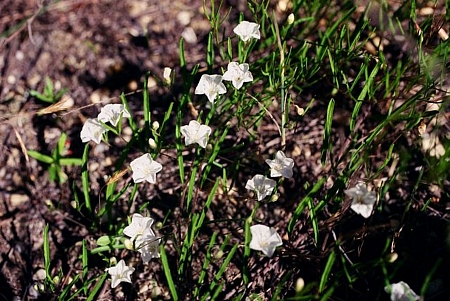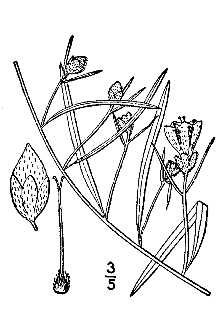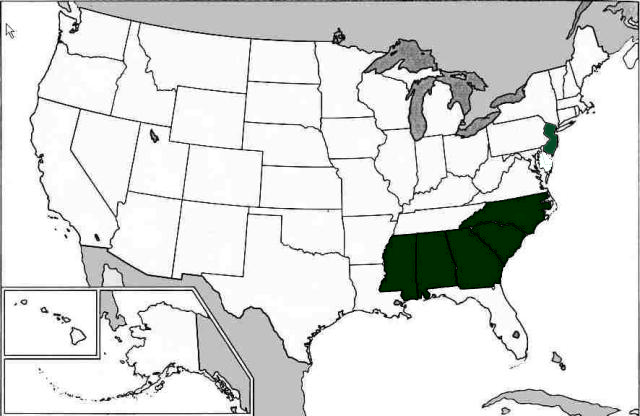Stylisma pickeringii var. pickeringii
 |
 |
Photo Courtesy Renee Brecht |
Britton & Brown |
| Botanical name: | Stylisma pickeringii var. pickeringii |
| Common name: | Pickering's morning glory |
| Group: | dicot |
| Family: | Convolvulaceae |
| Growth type: | vine; forb/herb |
| Duration: | perennial |
| Origin: | native |
| Plant height: | forms a mound of 1-2 meters |
| Foliage: | Stems prostrate, leaves narrowly linear, tapering toward the base. |
| Flower: | white, 5 petals, small clusters of 1-5 |
| Flowering time: | mid July to late August |
| Habitat: | dry to xeric, nutrient poor, well-drained, coarse sandy soils with little to no competing vegetation or litter |
| Range in New Jersey: | Pine barrens |
| Heritage ranking, if any: | S1. State endangered, listed Pinelands. |
| Distribution: |  |
| Misc. | This subspecies known only from the
New Jersey Pine Barrens. Ecological Relationships �Ģ There is slight morphological variation between the disjunct populations (Fernald and Schubert 1949). �Ģ S. pickeringii appears to be a primary successional species and cannot invade or colonize new areas without some sort of disturbance, whether fire or mechanical. In fact, spread of the dawnflower is greatest just following a spring or summer burn, where new shoots can colonize, flower, and set seed on newly cleared soil (TNC 1993). The optimal fire intensity, however, is unknown. Current Management Summary �Ģ Many populations occur in managed sandhills that presently receive regular prescribed burns. However, there are a significant number of roadside and other populations that lack a current management strategy (Bert Pittman, SC Natural Heritage Trust Program, pers. comm.). �Ģ Researchers in NJ report that prescribed burns destroyed populations in their state (TNC 1993). Center for Plant Conservation NJ DEP Element Stewardship Abstract Named for Charles Pickering (1805-1878), a prominent Philadelphia naturalist, member of the Wilkes Exploring Expedition, and prominent in local botanical work.(Stone, 653) |